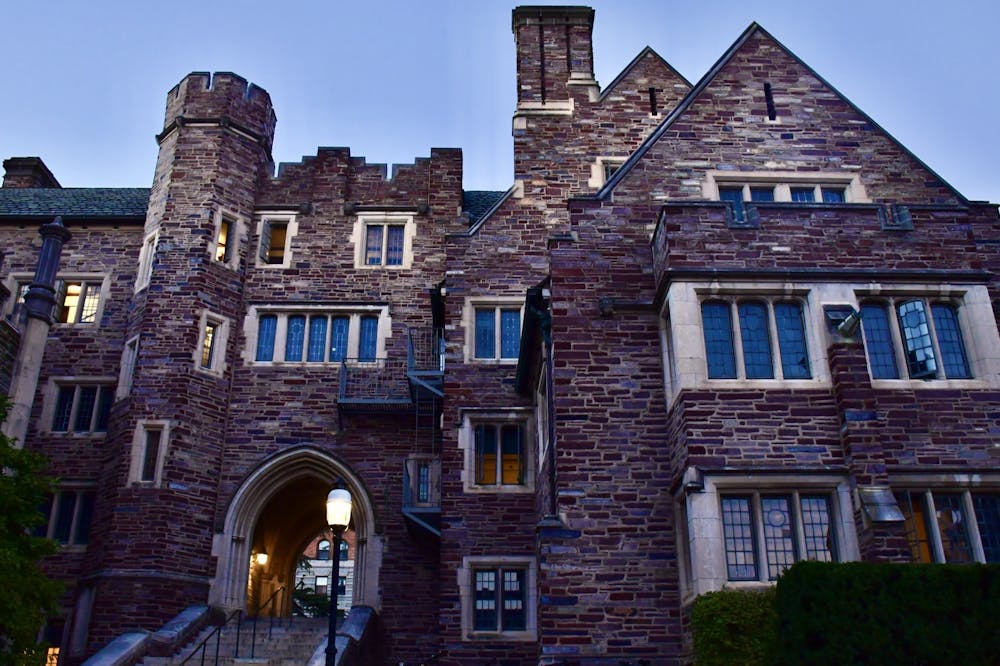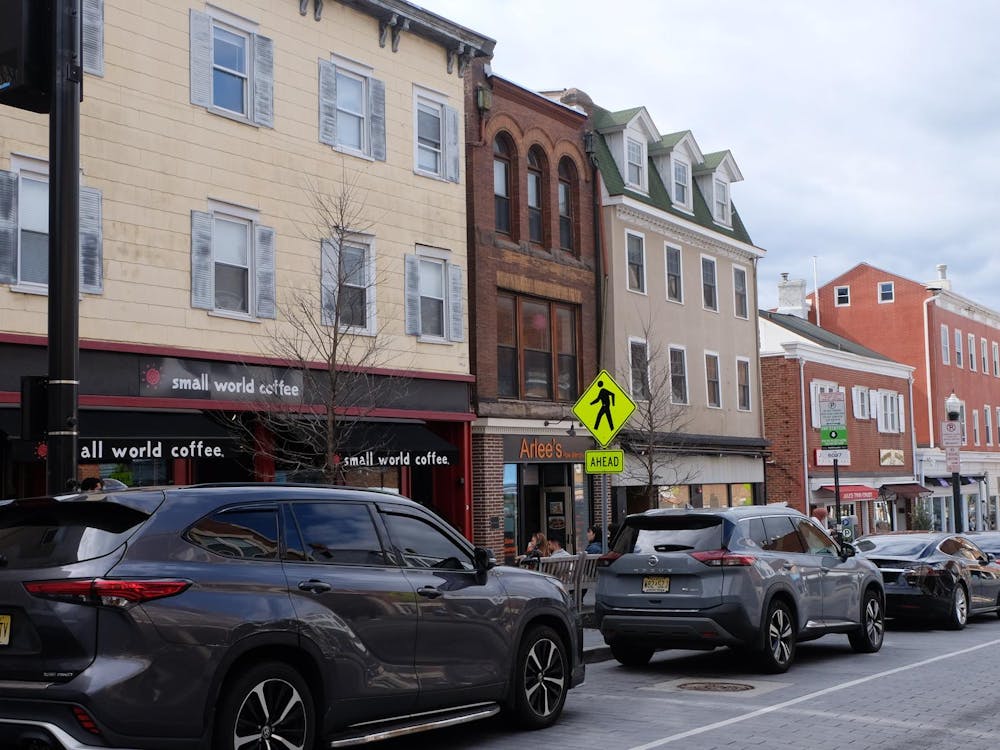On July 20, a white Princeton student invoked the n-word in a public Facebook comment attempting to bait a dissenting Black commenter. News of this incident spread quickly among Princeton students, some of whom drafted a petition calling for a discrimination hearing. As of Aug. 4, 2020, over 1,500 individuals have signed this petition. In response, Vice President for Campus Life Rochelle Calhoun emailed all undergraduate students, announcing that while harmful, this use of a racial slur did not violate our University’s Freedom of Expression policy.
In response to students who emailed them about this event, the Office of Diversity and Inclusion replied with a link to Counseling and Psychological Services, which is both understaffed and under-resourced. In doing so, the University acknowledges that the use of racial and ethnic slurs by students and faculty will cause enough harm to Black and Brown students to warrant counseling. But rather than stand up for or protect marginalized students in any meaningful way on this issue, the University would rather allow students of color to be further harmed and then send them to CPS to deal with their completely avoidable trauma.
As might be expected from a University that creates task forces and committees in the place of meaningful change, Calhoun’s statement ended with an invitation to participate in a series of facilitated dialogues on “these essential topics.” But if our reports of discrimination and emailed concerns are consistently ignored — our shared testimonies on social media that tag the official Princeton account are banned from appearing in Princeton’s tagged posts in a blatant display of censorship and hypocrisy — how will these conversations be any different? What kind of message does it send to current and prospective students if our concerns of racism and intolerance are met with invitations to “facilitate dialogue” and mental health resources? We have thus far been unequivocal in calling attention to the injustices we face. We do not need dialogue; we need action.
For Black students, who make up less than seven percent of the University population, to repeatedly hear the n-word used by peers and faculty is dehumanizing. The word reflects America’s 400+ year history of the oppression and disenfranchisement of Black people and still carries significant weight today in 2020. The n-word has no place in the mouths of any racial or ethnic group besides the Black community.
How can marginalized students feel empowered and respected when their own University protects racial, ethnic, gender, and other offensive slurs? How can an institution possibly position these students for success when its own administration acknowledges that school policies contradict and permit instances of offensive language that “do not match the values of [the] community”?
Given President Christopher Eisgruber’s own words on the necessity of confronting racism and the abundance of solidarity statements, Princeton’s decision to protect racist rhetoric is deeply hypocritical. Such a decision — condoning a student actively baiting members of the Black community on social media with the intent of framing subsequent responses as overly-emotional, irrational, and undemocratic — is “incompatible with the functioning of the University.” This is because such behavior undermines “the civility and sense of community on which the well-being” of Princeton’s campus depends.
It would be easy to look at the University’s response and reflexively minimize it as an isolated incident. While their response was directed at the transgressions of one individual, its implications are far-reaching. Princeton’s decision to not pursue disciplinary action has set a dangerous precedent whereby any non-Black student can employ racist rhetoric and not face sanctions. For Black students who are constantly forced to witness the use of such language, whether it be sung at eating club parties, graffitied in residence halls, or publicized in social media posts, this is absolutely unacceptable.
This response will invariably embolden individuals to use racial slurs. It is clear from past actions of both students and professors alike, that there is a segment of Princeton’s population which seeks to use racial epithets in spite of protest from the Black community. Princeton’s decision to sit idly by in the face of such injustice has sent a clear message to these racist individuals: say, type, sing, and shout racial slurs all you want — the University won’t lay a finger on you.

The University’s defense of its decision rests on its interpretation of freedom of speech. The University is wrong, however, in its implication that this freedom of speech is guaranteed equally, or that it prohibits accountability for the harm inflicted. Princeton and the United States share a pattern of punishing marginalized people fighting for change while protecting racist speakers. As a private institution, the University is fully within its rights to sanction individuals who don’t align with its views and vision, but the administration chooses not to do so. How can the University “emphasize that racism, prejudice, and bigotry have no place at Princeton,” when its policies continually protect such practices?
The University’s response falsely asserts the compatibility of unfettered free speech and anti-racism. The reality is that if an institution is anti-racist, it cannot allow and protect racism. Derogatory, offensive, racist speech must be subject to reprimand and punishment.
This is not to say that all controversial speech needs to be banned: respectful dissent opens the door for dialogue and deeper understanding. However, hate speech in the form of racial epithets and attacks does not contribute to meaningful discussion. By targeting race, said remarks automatically undermine the position of students of color and discourage them from responding at all. These attacks are designed to harm, to belittle, and to silence. Hateful speech creates an undeniably toxic environment and has no place in an institution that is truly committed to anti-racism.
Therefore, free speech and anti-racism must be balanced. It is important that discussion can take place, but students of color should not be denied a learning environment comparable to that of their white peers. They should not have to endure University-sanctioned dehumanization simply because some individuals are too closed-minded to engage in conversations about race and instead fall back on hate speech to “prove” their point.

Black Princeton students are acutely aware that the University has baggage — a history of investing in racist corporations, institutions, and individuals dating back to its role in slavery — but we did not enroll nor did the University accept our applications to uphold these traditions. Any university, including Princeton, is most successful when leadership measures their success by each continuous effort to listen and then actively show up for students, especially those students whose common goal is to create a fairer and more just university. With a $26.1B endowment and multi-year reign as the nation’s #1 university, the University starts its pursuit of an anti-racist campus with an incredible amount of power compared to the average ally. And yet, all the money and influence in the world will matter little until the University first chooses to do what any ethical institution must do: listen and use their power to do right by those they seek to support.
A policy that balances free speech with protecting students of color from undue pain is not unprecedented: Harvard University's harassment policy does this, placing "using racial epithets, making racially derogatory remarks, and using racial stereotypes" under the category of racial harassment, something Princeton's policies have yet to do. Ultimately, it is absurd to maintain that it is necessary to protect hate speech to promote an environment where all feel equally valued and comfortable speaking.
We call on Princeton University: step up and use your power to protect your Black students. We ask that the University follow in the footsteps of its peer institutions and explicitly ban the use of racial epithets on campus as codified in Rights, Rules, and Responsibilities. We ask this not with the aim of limiting free speech but to allow Black lives at Princeton to flourish in knowing that the University cares about our voices.
Furthermore, we ask the University to update its policy to be consistent with its desire to create an environment where students show “respect for each other, especially for fellow students who are personally affected by claims about topics such as gay marriage, immigration, racial equality, or religious freedom.” In changing its policy, the University will come closer to a vision of a successful anti-racist institution where the freedom to express opinions persists, and where there is support for, to quote Eisgruber, “people from all sectors of society genuinely feeling empowered to come to the table and feeling that their voices are respected.”
Imani Mulrain is a rising sophomore from Boston, Mass., concentrating in molecular biology. She can be reached at imulrain@princeton.edu. Mulrain serves as a summer columnist at The Daily Princetonian.
Jordan Stallworth is a rising senior from Lawrenceville, Ga., concentrating in the School of International and Public Affairs. She can be reached at jordanas@princeton.edu.
Mayowa Oke is a rising junior from Calgary, Canada, concentrating in neuroscience. She can be reached at ooke@princeton.edu
Kalyn Nix is a rising senior from Wilmington, Del., concentrating in molecular biology. She can be reached at knix@princeton.edu
Grace Simmons is a rising junior from South Jersey, concentrating in neuroscience. She can be reached at gracebs@princeton.edu.
Brittani Telfair is a rising junior from Richmond, Va., concentrating in the School of Public and International Affairs. She can be reached at btelfair@princeton.edu.
Kathy Palomino is a rising junior from Nashville, Tenn., concentrating in sociology. She can be reached at kp10@princeton.edu.
Josiah Gouker is a rising junior from Yucca Valley, Calif., concentrating in African American Studies. He can be reached at josiahg@princeton.edu.








